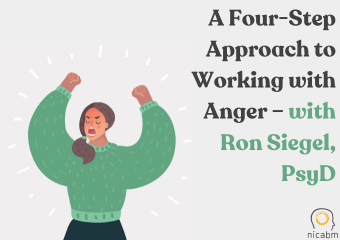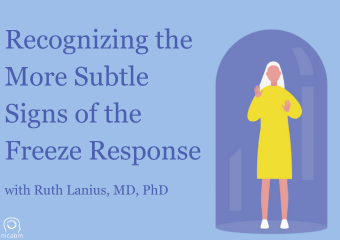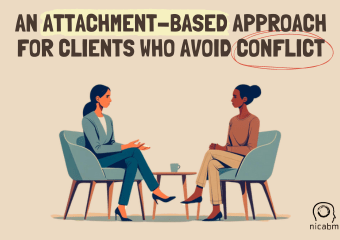By now, you’re probably familiar with many of the benefits of mindfulness. Maybe you even practice it yourself. Nevertheless, getting a client to try it out can still prove tricky for many therapists. So in the video below, Zindel Segal, PhD shares a simple way for you to help a client begin to explore the […]
[Infographic] The Neuroscience of Naming Shadow Parts
As therapists, we know the power of naming something. You’ve probably heard this before . . . . . . you have to name it to tame it. Well, not only does that sound catchy, but there’s a wealth of research to back it up. So when it comes to working with the parts of […]
A Four-Step Approach to Working with Anger – with Ron Siegel, PsyD
For many clients, expressing anger can feel overwhelming, shameful, or even downright scary. Problem is (and as I know you know), when a client takes great pains to avoid anger, it often just leads to bigger problems. So how might we resource clients with skills that can help them respond to and manage their anger […]
Recognizing the More Subtle Signs of the Freeze Response
It’s often easy to identify the obvious cues that your client is in freeze . . . . . . but what about times when the signs are so subtle, you might dismiss it (or even overlook it)? In the video below, Ruth Lanius, MD, PhD shares how recognizing a more subtle sign of freeze […]
An Attachment-Based Approach for Clients Who Avoid Conflict
When clients avoid conflict, it can make sustaining relationships difficult. And that includes the therapeutic relationship. But according to Eboni Webb, PsyD, before you address your client’s conflict avoidance head on, you might want to consider their attachment style. In the video below, Eboni walks through her attachment-based approach with clients who avoid conflict or […]




